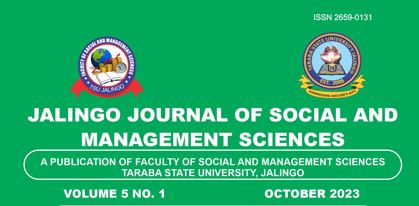Insecurity in a Democratic State: Re-Engaging Traditional Institutions as Alternative Action Plan for Enhanced National Security in Nigeria
Keywords:
Insecurity, Democratic State, National Security, Traditional Institutions, NigeriaAbstract
The main focus of this study is to examine the relationship between insecurity in Nigeria and the extent traditional institutions can be used as veritable tool for the mitigation of increasing insecurity in a democratic system such as Nigeria. The pervasive nature of insecurity, though, not an entirely a Nigerian problem, has been trending of late, and hence, become a huge source of worry for scholars, experts, public commentators and the international community at large. The menace of insecurity finds expression in wanton killings, kidnapping, farmers-herders conflicts, rape, communal clashes, militia activities, ethnic secessionist agitations and many other strands of violence. The multiplier effects of all these challenges have been very devastating in terms of the recent attacks witnessed all over the country in recent times. This study observes that most of the people engaged in some of these atrocities might be well known to traditional rulers in communities where they come from. This is because traditional rulers are closest to the people. The work is an exploratory study, and relies solely on literature and works of experts in the broader field of security studies for investigation. Data were strictly derived from secondary sources such as journal articles, books, monographs, among others. The paper recommends that there is need for the adoption of both vertical and horizontal approaches to tackle the menace of insecurity, particularly, using the instrumentality of traditional institutions.

Downloads
Published
Issue
Section
License
Copyright (c) 2023 JALINGO JOURNAL OF SOCIAL AND MANAGEMENT SCIENCES

This work is licensed under a Creative Commons Attribution-NonCommercial 4.0 International License.
